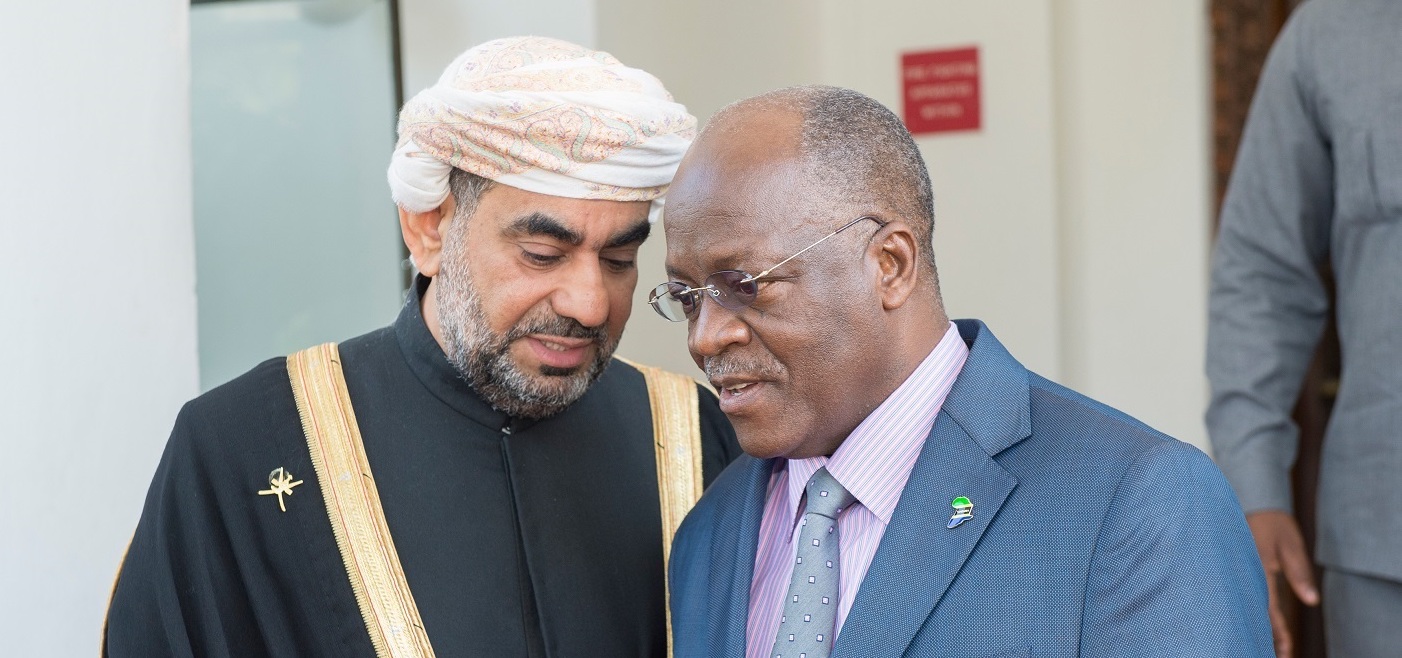Tanzanian Democracy-Terminally ill?
October 9, 2019 | Expert Insights

Background
Tanzania, better known for the picturesque Kilimanjaro and the verdant Serengeti plains, is presently under threat of losing its democratic credentials. There is a real chance of it going down the road of authoritarianism like so many other budding democracies in Africa.
Having the dubious distinction of being colonised both by Germany (German East Africa) and the British (Tanganyika), this beautiful country with 58 million people was born out of a 1964 unification of Tanganyika (independence 1961) and Zanzibar (independence 1963).
The father of the nation, Julius Nyerere, had instilled the spirit of ‘Ujamaa’ or an African model of developmentalism with roots in socialism. This politico-economic model fostered a national identity and has allowed for considerable development in the country.
Unfortunately, Tanzania remained a de-facto single-party state despite a 1992 constitutional amendment allowing a multi-party system. Since the 1962 elections, the Chama Cha Mapinduzi (CCM) or Party of the Revolution has enjoyed power producing a succession of increasingly authoritarian leaders. The main opposition party is called Chadema or Party for Democracy & Progress. Chadema has yet to win an election despite the fact that since 2005, it has gained considerable popularity.
The present incumbent, John Magufuli is further tightening the grips of the party on the country, stifling opposition and setting the stage for a sham democracy.
Analysis
Situated in a tough neighbourhood, Tanzania was a beacon of hope for democracy- nearby Rwanda, Uganda, Burundi and DRC have all been plagued with military coups, ethnic conflicts, and genocide at one point or the other. While Tanzania is also multi-ethnic and multi-religious but the Tanzanian identity as it evolved over the years was able to transcend these divisions. This attribute earned for Tanzania the favour of western investors and aid donors spread over decades.
Sadly, things have not been rosy in the last two years. After coming to power in 2015, initially, Magufuli won public acclaim with a slew of austerity measures for reducing government spending. But the popularity soon faded when he began issuing irrational dictates and muzzling the press and intelligentsia. The leading daily has been banned and widely respected journalist Kabendera was arrested for being a vocal critic of Magufuli. Worse, severe restrictions have been imposed on foreign media to the dismay of foreign investors and aid donors.
With elections due next year, Magufuli is busy framing the laws in his favour, to retain power.
A year ago, the World Bank had frozen funding after the Tanzanian government amended the National Statistics Act. The amendment made critics of government published data liable to fines and imprisonment. The funding was only restored when a recalcitrant Magufuli reluctantly agreed to remove the threat of imprisonment.
A draconian Cybercrimes Act promulgated in 2015 virtually freezes free expression and privacy rights. Student activists have been abducted and kept incommunicado by state agencies for social media posts.
Similar concerns were also raised by the European Union over the suppression of civil society, gay rights and expulsion of teenage mothers from schools. Denmark, the country’s second-biggest donor has said that it will withhold $10 million on account of anti-gay statements made by Magufuli government.
This year, Magufuli enacted a special bill to curb civil society groups giving the government the right to evaluate, investigate and even suspend operations of such groups. Critics have argued that these new laws will discourage companies from investing in Tanzania.
With funds from the EU and World Bank drying up, the economy is in the doldrums. Chinese, known for far greater tolerance for authoritarian regimes, has stepped in as part of their broader footprint over Africa. However, declining Chinese growth and trade war with US have kept investments low.
In a worrying sign, political violence has made an appearance. In 2017, opposition whip, Tundu Lissu, an outspoken critic of Magufuli was shot by unknown gunmen.
Assessment
- Tanzania is a sad example of a nation born into democratic ideals being turned into a basket-case through repressive politics. The legacy of Julius Nyerere lies in tatters today.
- The ruling CCM has enjoyed enough and more opportunities in power. It is time for them to honour their 1992 multiparty decision and allow for free and fair elections.
- The multiparty charade is only there to beguile western donors like Denmark. The opposition Chadema has spent half a century warming the opposition benches and may as well wait till eternity before it sits on treasury benches, notwithstanding its popularity.
- Tanzania’s success in the field of education and healthcare, thanks to the founding father Nyerere, was the envy of its African neighbours. Current political instability, diversion of funds and donor disenchantment will only lead to their ruin.
- The country holds a very significant position geographically and has traditionally thrived on trade. The cost of holding onto power must not be borne by the citizens.
- The world over, ideas of liberalism and democracy are being increasingly challenged. Populist leaders, once in power, are obsessed with the need to secure their power for as long as they can and if possible, for perpetuity, unmindful of the cost to the nation and its institutions.
Image Coourtesy: wikimedia commons








Comments